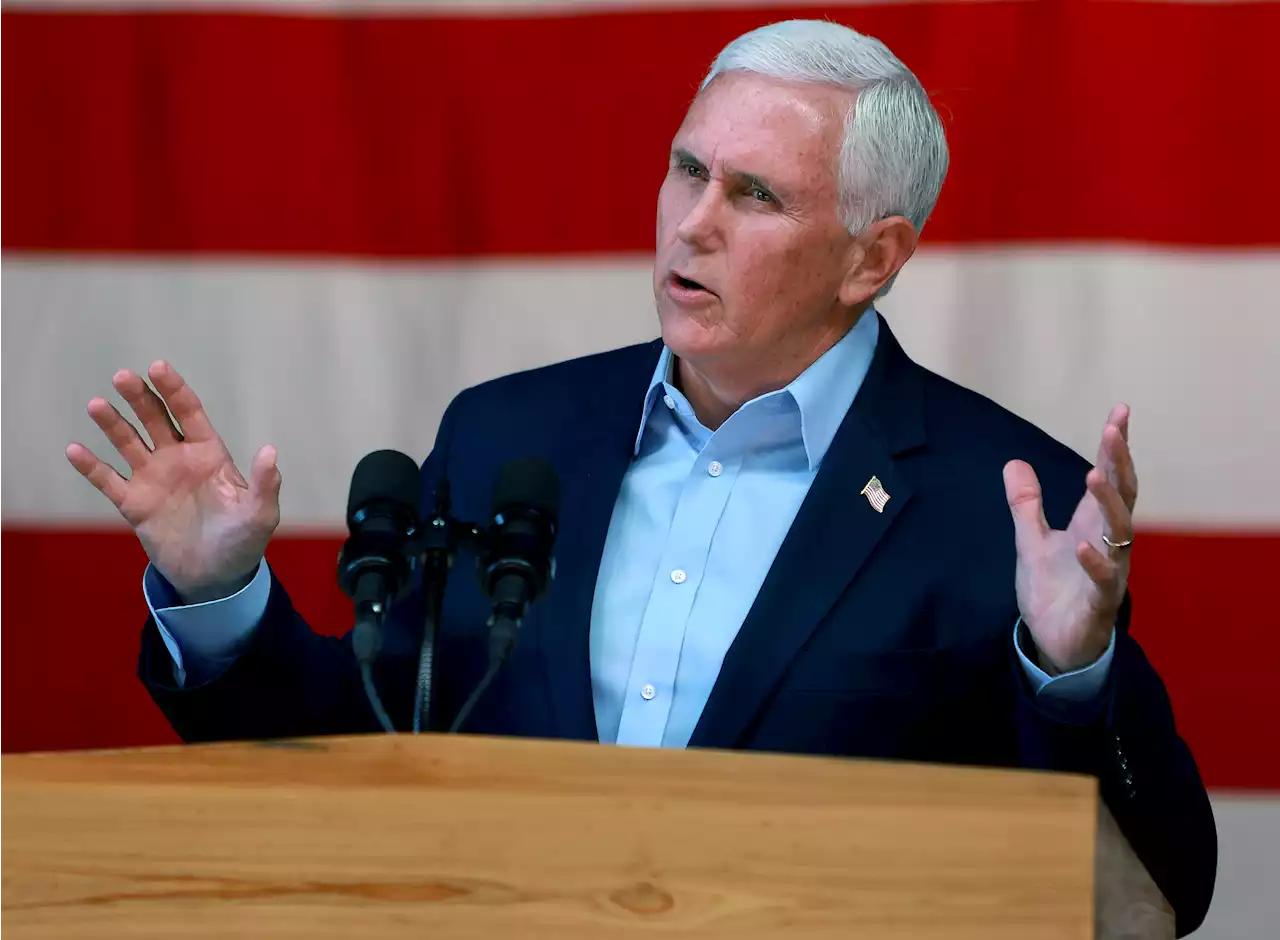Pence blocking the electoral college certification would have violated the Electoral Count Act, according to his attorney.
Trump refused to concede the election following his defeat, claiming without substantial evidence that widespread voter fraud led to his loss. In the months that followed, he and his allies planned to overturn the election.
A memo shows Mike Pence’s attorney Greg Jacobs advising him to certify President Joe Biden’s victory ahead of the electoral college count after the 2020 presidential election. Above, Pence speaks in Kennesaw, Georgia on May 23, 2022. Jacob concluded that if Pence were to try to block or delay the certification, he would"likely lose in court," according to the memo, dated January 5.
"In a best-case scenario in which the courts refused to get involved, the Vice President would likely find himself in an isolated standoff against both houses of Congress, as well as most or all of the applicable State legislatures, with no neutral arbiter available to break the impasse," the memo reads.
The memo assessed attorney John Eastman's plan to have Pence send competing slates of electors back to state legislatures, essentially declaring that the election is in dispute. But his assessment found the plan likely went against established law that mandates the transfer of power. It ultimately helped inform Pence's decision to certify the vote, which quickly drew rebuke from Trump and his allies. During the January 6 riot, several Trump supporters even chanted"hang Mike Pence" inside the Capitol building—a chant Trump
